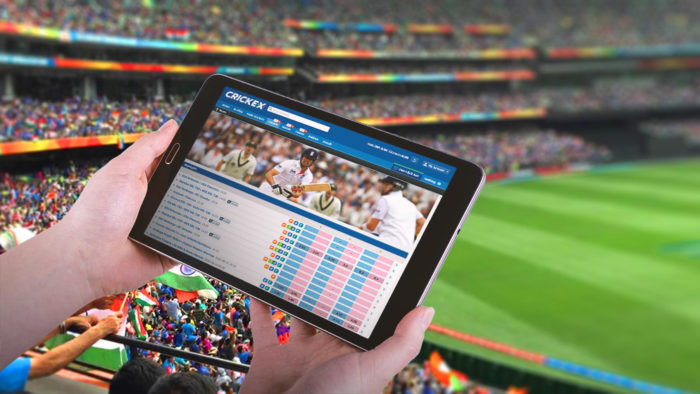
In the world of sports betting, knowledge is power. The more information you have at your fingertips, the better your chances of making informed decisions and beating the odds. One area where data analytics has revolutionized the game is football betting. Gone are the days of relying solely on gut instincts and hunches. Today, sophisticated data analysis tools and techniques have become indispensable for serious football bettors. In this article, we will explore the significant role that data analytics plays in football betting and how it has transformed the way we approach wagering on the beautiful game.
Understanding the Basics
Before delving into the intricacies of data analytics in football betting, let’s start with the fundamentals.
1. Football Betting 101
Football betting is a form of gambling where individuals place wagers on the outcome of football matches. This can involve predicting the winner of a game, the number of goals scored, or even specific player performances. The odds assigned to each outcome by bookmakers reflect the perceived likelihood of that event occurring. Understanding these odds is key to making informed bets.
2. What is Data Analytics?
Data analytics, in the context of football สมัคร betting, refers to the process of collecting, processing, and analyzing vast amounts of data related to football teams, players, and matches. The goal is to extract valuable insights that can inform betting decisions.
The Data-Driven Revolution
The advent of the internet and the proliferation of sports data have ushered in a new era for football betting. Here are some ways in which data analytics has transformed the landscape:
1. Injury Analysis
Injuries can have a significant impact on a team’s performance. Data analytics tools can provide historical injury data for players, helping bettors assess the likelihood of key players being unavailable for an upcoming match. This information can influence betting decisions, as a team missing its star striker may be less likely to score goals.
2. Team Performance Metrics
Advanced statistics, such as Expected Goals (xG), possession percentages, and pass completion rates, offer a more comprehensive view of a team’s performance than traditional metrics like wins and losses. Data analytics enables bettors to evaluate teams based on these metrics, providing a deeper understanding of their strengths and weaknesses.
3. Player Analysis
Analyzing individual player statistics can be a game-changer. Data analytics tools can track player performance in various categories, such as goals, assists, tackles, and shots on target. This information helps bettors identify standout players and make predictions about their contributions to a match’s outcome.
4. Match History and Trends
Data analytics allows for in-depth analysis of historical match data. This includes head-to-head records, home and away performances, and trends over time. Bettors can identify patterns and trends that may not be apparent through casual observation, helping them make more accurate predictions.
5. Real-time Updates
With the advent of live data feeds and real-time statistics, bettors can stay updated during matches and adjust their bets accordingly. This dynamic approach to betting allows for more informed in-play wagers.
Tools of the Trade
To harness the power of data analytics in football betting, you need the right tools. Here are some essential resources:
1. Data Aggregation Platforms
Platforms like Opta, Stats Perform, and ESPN provide comprehensive football statistics and data feeds. Subscribing to these services gives you access to a wealth of information to inform your bets.
2. Statistical Models
Advanced statistical models, such as Poisson distribution models and Elo ratings, are commonly used by professional bettors. These models consider multiple factors to predict match outcomes more accurately.
3. Betting Software
There are various betting software applications available that incorporate data analytics into their algorithms. These tools can help bettors identify value bets and manage their bankrolls more effectively.
Strategies for Success
Now that we’ve established the importance of data analytics in football betting, let’s discuss some strategies for leveraging this information to your advantage:
1. Bankroll Management
Managing your bankroll is crucial in sports betting. Data analytics can help you assess the risk associated with each bet and determine the appropriate stake. It’s essential to avoid overextending yourself and betting more than you can afford to lose.
2. Value Betting
Value betting involves identifying bets where the odds offered by bookmakers are higher than the perceived probability of the event occurring. Data analytics can help you pinpoint value bets by comparing your own probability estimates to bookmaker odds.
3. In-Play Betting
Live data feeds allow for in-play betting, where you can wager on events as they unfold. Data analytics can help you make quick decisions based on real-time statistics, increasing your chances of making profitable in-play bets.
4. Research and Analysis
Thorough research and analysis are essential components of successful football betting. Use data analytics tools to dig deep into team and player statistics, injury reports, and historical data. The more you know, the better your predictions will be.
Challenges and Limitations
While data analytics has undoubtedly enhanced football betting, it’s not without its challenges and limitations:
1. Data Accuracy
The quality of your predictions is only as good as the data you rely on. Inaccurate or incomplete data can lead to flawed analyses and misguided bets.
2. Overreliance on Data
While data analytics is a powerful tool, it’s essential to balance it with other forms of analysis, such as qualitative assessments of team dynamics and intangible factors like team morale.
3. Bookmaker Adjustments
Bookmakers are well aware of the value of data analytics and adjust their odds accordingly. As more bettors use data-driven strategies, finding value bets becomes increasingly challenging.
4. Emotional Control
Even with the most sophisticated data analysis, football betting remains unpredictable. It’s crucial to maintain emotional control and avoid chasing losses or making impulsive bets based on frustration.
Conclusion
Data analytics has revolutionized football betting by providing bettors with a wealth of information and tools to make more informed decisions. From injury analysis to real-time updates, data-driven strategies have become essential for those looking to gain an edge in the world of sports betting. However, it’s important to remember that while data analytics is a valuable tool, it’s not a guaranteed path to success. Successful betting requires a combination of data analysis, research, emotional control, and a bit of luck. As the world of football and sports data continues to evolve, so too will the strategies and techniques used by savvy bettors.











